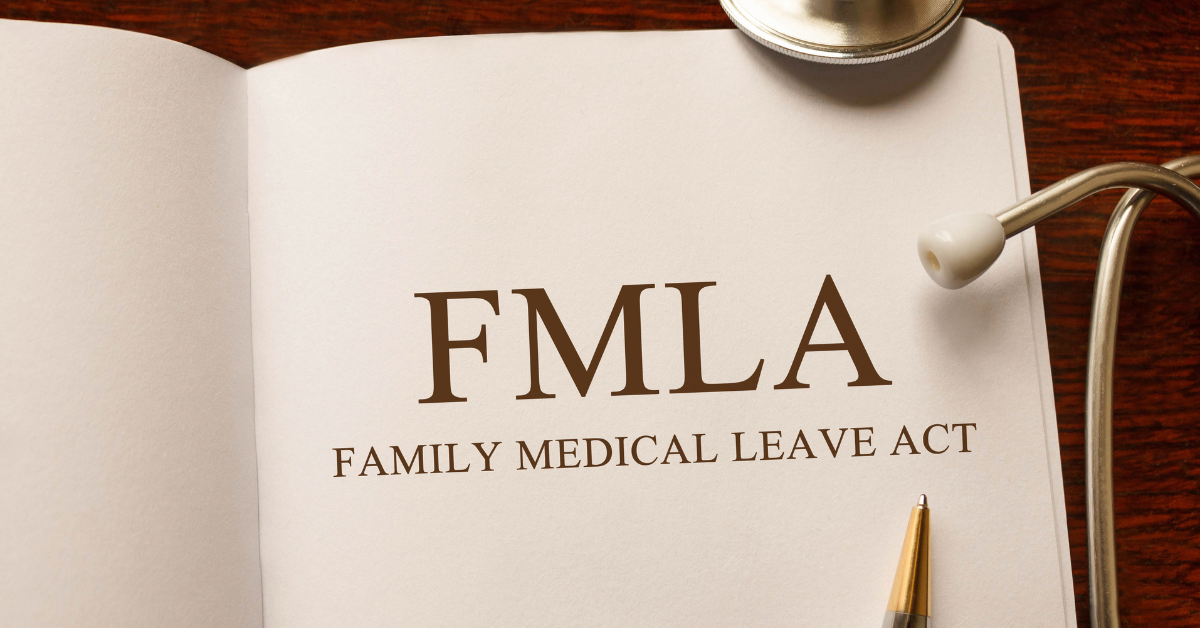Substance use disorders (SUDs) affect your life in many ways, including your ability to work. That’s why US law provides employment protections for rehab from substance abuse. It’s called the Family and Medical Leave Act (FMLA), and it exists to help you retain your job while navigating addiction recovery. Let’s explore how you can use FMLA to take much-needed time to start your recovery journey.
What is the FMLA?
The Department of Labor’s Family and Medical Leave Act (FMLA or the Act) provides employees up to 12 weeks of job-protected unpaid leave under certain conditions:
- Treat a serious health condition as defined by the Act.
- Assist your spouse, children, or parent with their own health conditions.
- Care for and bond with a newborn or recently adopted child.
Is Substance Use Disorder a Serious Health Condition?
According to the Act, a serious health condition requires inpatient care or continuing (ongoing) care by a healthcare provider, such as pregnancy, prenatal care, and treatment that leads to a period of incapacity longer than three days.
Serious health conditions include chronic illnesses that occasionally make you unable to work but also more immediate conditions that would require overnight stays at a hospital.
Based on its potential consequences and the realities of treatment, you can see how SUD can be considered a serious health condition. Moreover, SUD often results in further health complications that call for immediate medical attention and recovery time, which would also fall within the FMLA’s definition of “serious health condition.”
Who is Eligible For FMLA?
Not all businesses are covered by the FMLA; even if they are, you might not qualify if you’re very new to the company. For your employer to be legally required to comply with medical leave under this Act, it must meet any of the following requirements:
- It’s a private company that has employed 50 or more employees for at least 20 workweeks in the current or preceding calendar year.
- It’s a government agency.
- It’s an elementary or secondary school. It can be either public or private.
Assuming your employer meets any of these criteria, you still need to meet all of the following requirements to be eligible for unpaid leave under the FMLA:
- You’ve worked for your employer for at least 12 months.
- You’ve worked at least 1,250 hours for your employer in the last 12 months.
- Your employer has 50 employees within 75 miles of your worksite.
You are eligible for FMLA leave if you and your employer meet these requirements.
Still, your employer may ask you to provide certification from a healthcare professional that explains why you need time off work and when you’ll be back. When you return, you must also submit a fitness-for-duty certification.
Can You Take Leave for Addiction Rehab Under FMLA?
Yes. Substance use disorder meets the criteria for a serious health condition, and you can use the FMLA for any necessary treatment, including rehab, inpatient treatment such as hospital stays, and treatment for other conditions caused by SUD. Note that the keyword here is treatment. A medical professional must justify your absence, and you’ll need to provide proof that you went through said treatment.
FMLA also ensures that, although the leave is unpaid, you still have access to the health benefits your employer provides. FMLA protects you from demotion and refusal of promotions, too.
Can an Employer Deny Your FMLA Rehab Leave?
Not all leave requests under FMLA are automatically granted. There are specific criteria and situations where an employer can legally deny FMLA leave, including:
- Eligibility Requirements: Not all employees are eligible for FMLA leave. An employee must have worked for the employer for at least 12 months, have at least 1,250 hours of service for the employer during the 12 months before the start of leave, and work at a location where the employer has at least 50 employees within 75 miles.
- Exhaustion of FMLA Leave: If an employee has already used up their 12 weeks of FMLA leave in the 12-month period, the employer can deny additional leave.
- Insufficient Information: Employers can deny FMLA leave if the employee fails to provide adequate documentation or sufficient medical certification to support their leave request.
- Non-Qualifying Reason: If the leave is for a reason that doesn’t qualify under FMLA (e.g., non-serious health conditions or matters unrelated to immediate family or medical emergencies), the employer can deny the leave.
It’s important to note that the specific circumstances of each case can vary, and both employers and employees should consult with HR professionals or legal experts to understand their rights and responsibilities under FMLA. Employers must also comply with state-specific leave laws, which can sometimes provide additional protections or requirements beyond the federal FMLA.
Take the Next Step in Your Recovery Journey
If you or someone you know is considering rehab for substance use disorder and is concerned about job security, remember that you are not alone in this journey. The Family and Medical Leave Act (FMLA) is there to support you, but navigating its provisions can be challenging.
Talk to an expert to help you understand your rights under FMLA, assist in coordinating with your employer, and provide essential resources for your rehabilitation process. Don’t let uncertainty hold you back from taking the crucial steps towards recovery and well-being.
